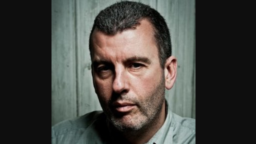Jeremy Lascelles had spent so long at the top of the music industry mountain that he decided it was about time he visited the valley below. Specifically, the Napa Valley.
In 2010, after Chrysalis Music, the publishing company where he had been CEO, was sold to BMG, he found himself out of work and – after a lifetime in an industry that appeared to be in a terminal, piracy-induced tailspin – contemplating doing something else for the first time.
“The last year at Chrysalis had been quite tough,” he says. “I really needed a break. It was the first time I hadn’t worked since I was 17. And I did think, time to do something different.”
A big football and cricket fan, he thought about a move into sport (“But they’re actually very scuzzy businesses – football makes the music industry look pristine and saintly!”), before deciding importing wine could be the future.
“I’m a passionate wine collector and I developed a real interest in Californian wines from my frequent trips to LA,” he smiles. “There were all these stunning wines that weren’t very available in the UK. I’d imagined I’d just be tasting wine and selling it, but I realised I’d spend most of the time filling in paperwork, dealing with customs and all sorts of shit.”
So – having reconnected with his old vinyl collection while free from the constant work pressure to listen to nothing but new music – he decided to stick to what he knows best.
“I realised I actually know quite a lot about this stuff,” Lascelles says, with trademark self-deprecation. “I’ve been quite successful, I’m quite good at it and I had this idea for something else I could do…”
That ‘something else’ was Blue Raincoat Music. Launched in 2014 alongside co-founder and legendary producer, the newly knighted Sir Robin Millar (“He’s still just Robin to me!” quips Lascelles), as an artist management company, it has since added a publishing division (Blue Raincoat Songs), bought the legendary Chrysalis Records catalogue and relaunched Chrysalis as a frontline label. It partnered with Reservoir in 2019, giving it access to plenty of investment capital. And everything’s going according to plan: Millar recently found the pair’s original business proposal and discovered they had achieved “90% of what we set out to do”.
So, no wonder that visiting the Blue Raincoat office in the heart of Shoreditch is a throwback to the days when music HQs would buzz with excited talk of new artists, and executives would eagerly press records – actual records – into your hands with the zeal of true believers.
And there is a lot to be excited about at BRM right now. On the management side – which brings independent managers and their clients under the Blue Raincoat Artists umbrella, as well as developing acts and managers in-house – new acts such as Nova Twins (managed by former VP of marketing, Rupert King) and The Mysterines (former SVP of marketing, John Leahy) are breaking through to join Arlo Parks (Ali Raymond), Phoebe Bridgers (Darin Harmon) and Cigarettes After Sex (Ed Harris) at the top of the alternative tree.
And Lascelles himself is also returning to management, personally looking after legendary rockers Skunk Anansie – who he published back in the 1990s – in partnership with Big Life Management’s Kat Kennedy, following the retirement of the band’s long-time manager, Leigh Johnson.
“It was delightful to reconnect with Skunk Anansie,” grins Lascelles. “They never got the credit that they deserved as trailblazers. Kat’s brilliant and totally up for it, so it’s all systems go…”
In publishing, Blue Raincoat represents everything from Self Esteem to the Nick Drake catalogue (a forthcoming Nick Drake tribute album with a stellar cast list is “a great example of how one part of the business can help the other,” according to Lascelles). And while the Chrysalis Records catalogue – home to The Specials, Ultravox and Suzi Quatro – ticks over very nicely, frontline artists such as Laura Marling, Emeli Sandé, The Wandering Hearts, William The Conqueror and brand-new signing Marika Hackman are building a bold new future.
And Lascelles, far from sitting with his feet up and a cheeky glass of Cabernet Sauvignon, is at the heart of it all. This was the “hybrid music company” he dreamed of launching and, following stints as an artist manager (his brother’s band, Global Village Trucking Company), a tour manager (Lou Reed, Curved Air), a label executive (Virgin Records) and a publisher (Chrysalis Music), in many ways, this is the multi-tasking role he’s been warming up for since entering the industry as a naïve 17-year-old in 1972.
“I’m changing hats all the time and sometimes I have to remind myself – am I the manager, the record label or the publisher?” he chuckles. “Sometimes I’m more than one of those things! My finance people wanted to try and work out how much time I allocate to the different businesses, and I said, ‘I haven’t got a fucking clue! I just do it. I go where I need to be…’”
Thankfully, where he needs to be right now is holed up in his office, talking to MBW. And it turns out that the wine business’ loss is very much the music industry’s gain…
What’s been the key moment on the Blue Raincoat journey?
When we bought Chrysalis Records in 2016. That was the moment when all the things I wanted to do, I could do. The original vision was always to own a catalogue.
When we started Blue Raincoat, we thought it was probably more likely we’d buy a publishing catalogue than a recorded music one. Now, I’m delighted it was the other way round, because things have changed.
When we started, streaming barely existed, we coincided with its explosion. So, buying Chrysalis was pivotal, because I had something of substance and could build the team I need to run a label, market a catalogue and provide services for all the things that are riskier: releasing new records, doing publishing deals for unknown artists, expanding our artist management business… You can do that if you’ve got the financial security blanket of a catalogue that is consistently doing well.
And that was always the plan. When you start a new business, you want to minimise the opportunities for sleepless nights.
So, is anything giving you sleepless nights at the moment?
Jet lag! No, when they come, they tend to be about specific projects that I’m so keen to get done that they get in the way. But for the most part, it’s
been okay!
Does your experience of so many different music industry roles give you an edge in negotiations?
Well, it should do, shouldn’t it? When I make a deal, I always try to put myself in the position where, if I was on the other side of the negotiation, would it be fair? A good deal is one both parties feel positive about. A good deal isn’t one side screwing the other. Well, in the past maybe it would have been, but I never subscribed to that.
“I’ve always been mindful of the fact that this business only exists because of the artists.”
I’ve always been mindful of the fact this business only exists because of the artists, they are by far the most important element in the whole landscape and if we fuck them over, what are we doing? Our job is to take great music to an audience, not to try and be bigger or more powerful than the people making it.
Are artists in a better position now?
Yes, without any question. They’re less reliant on having to have a relationship with a third party like a record company. Because it’s absolutely possible to function independently. You can do it all on your own – it’s not always the best thing, but you can.
After the streaming debate, do labels need to change?
They have changed, but not enough. Record companies still have an important role to play if they reposition themselves in the right way.
They are still potential providers of important resources, of which money is one of the biggest; when you’re trying to break an artist, it’s very hard to do without access to capital. Record companies are big investors, they take a lot of risk and I’m a great believer in the risk-and-reward ratio in any business deal.
It’s not unreasonable they should get a proper reward for the risk they take, but it’s got to be proportionate. They’ve got to stop thinking of themselves as lords and masters and think more like partners in their relationships with artists. It’s about a fairer distribution of money earned and a fairer way of dealing with rights ownership.
Lots of people have made the parallel: if you’ve paid off your mortgage, why do the mortgage company still own your house? At Chrysalis Records, we make deals we think are fair and balanced: give the artist a big chunk of the upside and they will get their rights back after a time.
We try and structure something that we would think was a good deal if we were the managers of that artist.
How does the relationship with Reservoir work?
It works very well, that’s the simple answer. They are extremely good partners, very supportive, they’ve given us investment of working capital and a global infrastructure to plug into. They’ve got a lot out of it and so have we.
Are you left to your own devices?
For the most part. They’re partners and investors, so it would be rude and irresponsible not to tell them what we’re up to, and we
talk all the time. I don’t just spend money without talking to them. But it’s a very good working relationship.
You relaunched Chrysalis as a frontline label at the start of the pandemic, by rush-releasing Laura Marling’s Song For Our Daughter. How is the label working out?
[Laughs] That was an unusual way of relaunching Chrysalis! We basically did the opposite of everyone else and brought everything forward.
It was a bold step in how we presented and released the record. Management of a frontline record label is, I guess, where my true passions lie, but what I liked about relaunching Chrysalis was, I didn’t have to go, ‘Right, we’re a record company, we’ve got to feed the machine and put a record out
every month’.
I can put out eight albums in a year or no albums in a year and it doesn’t matter, because my team works across everything. We can make decisions on what to sign based on merit, rather than a panic about what we have got next.
You’ve made some moves into the catalogue acquisitions market with Reservoir. What’s your view on that trend?
I’ve got mixed views on it, to be honest. It’s every artist’s prerogative to do what they think is right for them, and you understand if an artist gets to a certain age, does the maths, and realises they’re getting this amount of money now, considerably more than they’re likely to earn in their lifetime. As a simple way to deal with your legacy and of capitalising what you’ve worked for, it makes sense.
What worries me is that – and Reservoir is an exception to this, thank God – it’s not always music companies that are buying these assets. They’re going into the hands of big financial institutions who don’t really have a feel for the ups, downs and vagaries of the creative world.
They don’t do it because they love that third album, they just look at the numbers, which is not always the healthiest place for music assets to sit. Because these songs, these records, these artists, are not three-to-five-year things, they are here for our lifetime, the next generation’s lifetime and
for ever.
They are part of the fabric of our existence as human beings on this planet. And the fact they’re now being overseen by people we wouldn’t even have thought about engaging with, venture capitalists and pension funds… If we’d had this conversation 25 years ago, we’d have thought you’d taken particularly strange drugs that day and you probably shouldn’t take them again!
What’s the proudest moment from your career so far?
It’s all about the artists, particularly when the odds are stacked against you and people have told you, ‘This ain’t gonna happen’ – and then it does.
David Gray is the biggest, most obvious example. I signed his first record deal to Virgin and then left soon after we made the first album [A Century Ends, 1993]. And then, against the advice of my then-boss at Chrysalis Music, I signed his publishing in 1996, thinking this guy’s just so good, something’s going to happen.
I was told, ‘Don’t sign an artist who’s had three unsuccessful albums, don’t sign an artist you’ve signed before, what do you think you’re doing?’
He made White Ladder with some of our help financially and resource-wise, but it was a self-made, self-released record which, initially, no one was interested in putting out. The album’s now at eight-to-nine million sales.
That was definitely a nice moment, because I believe so strongly in Dave and his talent and I still think he’s one of the most under-rated artists around.
You worked for Virgin and Chrysalis, two indie giants. Can Blue Raincoat achieve similar status?
No! We’re never going to be of that size and stature. And that’s not particularly the ambition – although, frankly, I don’t know what the ambition is! I didn’t set out to ‘conquer the world’; if you set yourself silly targets, it’s easy to fail. But we stand for something that I hope is recognised by the artistic community as being a good place to be creative and have a strong partnership with.
If you could change one thing about today’s music industry, right here and now, what would it be and why?
I always used to dislike the fact that there were a small number of gatekeepers that blessed you with their patronage and said, ‘Yes, I will allow you to have your record played on my radio station or stocked in my record stores’. That’s gone, but it’s been replaced by a different set of gatekeepers.
“People swear by algorithms, but they cause as many problems as they solve.”
And I don’t like the fact that you’ve still got a system that basically says, ‘You fit, you don’t fit, you’re right for our playlist, you’re not’. People are often very narrow-minded in terms of the music they deem worthy of being exposed.
And people swear by algorithms, but they cause as many problems as they solve. I don’t like being told what someone who I don’t know thinks I should like. I love different music – I don’t like the same-old, same-old, generic, neatly packaged product.
You still seem very enthusiastic about the music business – or are you just really good at faking it?
[Laughs] It’s the latter – I hate every minute of it really! No, I’m one of the lucky people that earns a living out of my hobby and passion as a kid. I love the artists I work with, the company we’ve built and the people that are part of Blue Raincoat.
The day I stop enjoying it, I’ll stop – or it will tell me to stop. It would be nice if I decide, rather than it tells me, ‘Your time’s up Jeremy, piss off!’ But I’m genuinely enjoying it and feel more energised than at any stage of my life.

MBUK is available via an annual subscription through here.
All physical subscribers will receive a complimentary digital edition with each issue.
Music Business Worldwide





